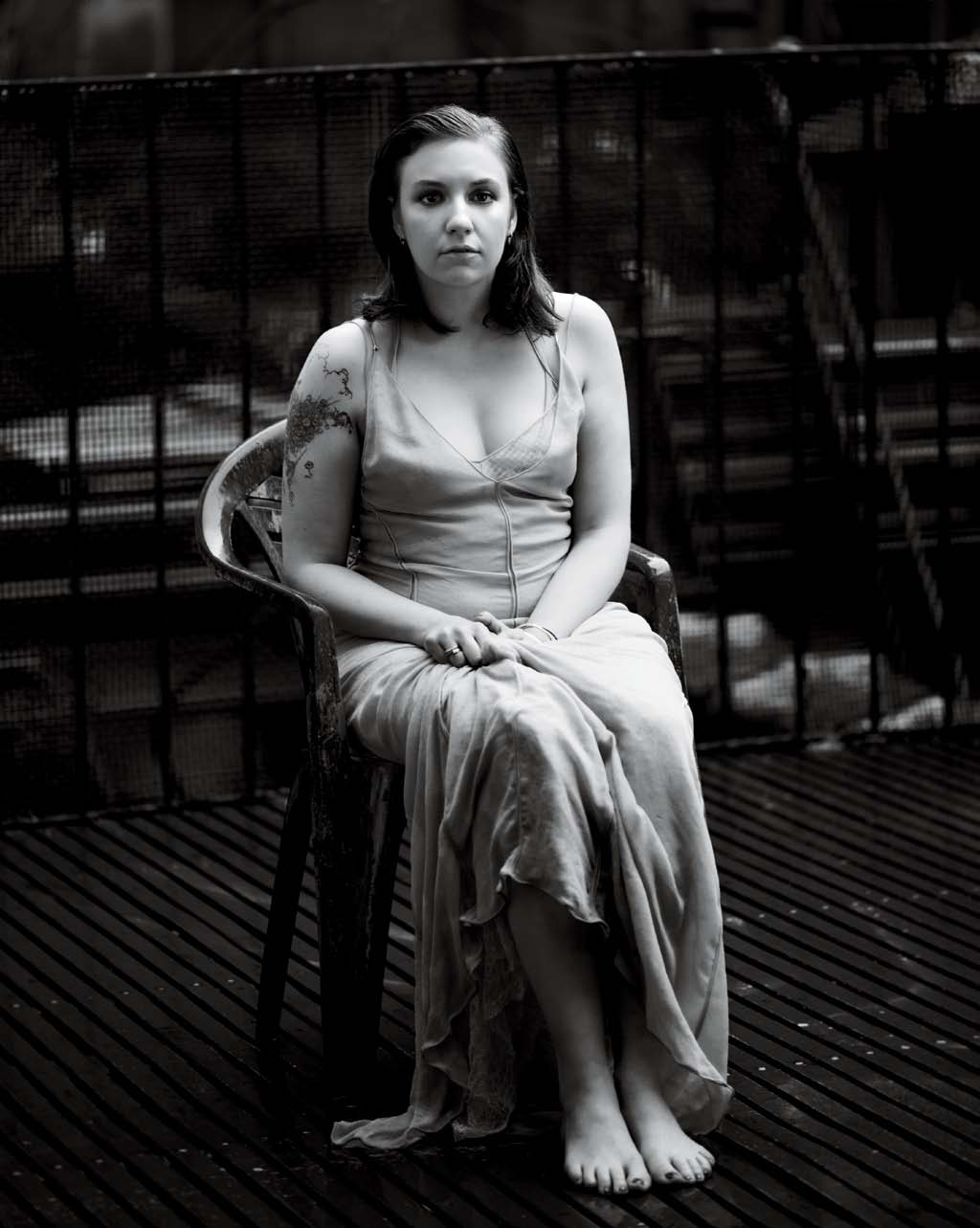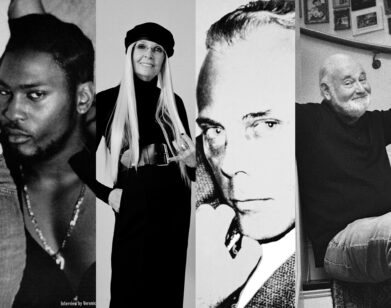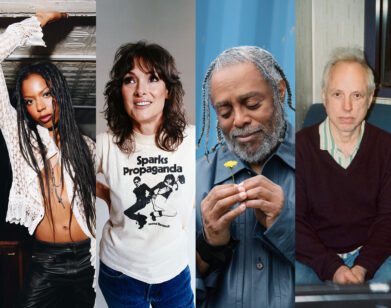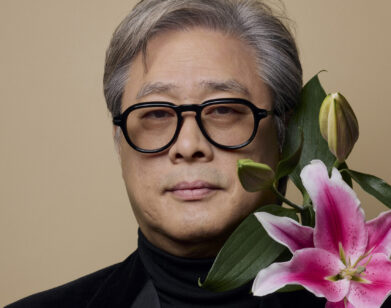Lena Dunham
I do think girls in their twenties accept certain kinds of lesser treatment than they would at other times in their lives.Lena Dunham
“I think that I may be the voice of my generation—or, at least, a voice of a generation,” declares Hannah, the aspiring writer protagonist of Lena Dunham’s new series, Girls, which premieres this month on HBO and revolves around a group of four young women living in New York as they fumble their way through twenty-something life in the greater post-recessionary Manhattan area. Hannah, played by Dunham (who also writes, executive produces, and directs Girls), is the talky, self-obsessed one, and makes her announcement in her parents’ hotel suite after a whirlwind 24-hour period during which she has been summarily cut off by them financially, fired from her unpaid internship, engaged in awkward sex with a guy who might not be into her, and downed a cup of opium tea. To longtime cable subscribers, the show’s other archetypes will seem vaguely familiar: there’s Marnie (Allison Williams), the uptight, ambitious one; Jessa (Jemima Kirke), the flighty, adventurous one; and Shoshanna (Zosia Mamet), the naive, optimistic one; there’s even a Sex and the City poster in one of the Girls girls’ apartments. But while Sex and the City was a celebration of all of the cosmos, Manolos, and punny innuendos of a certain kind of single-girl life in Manhattan, Girls reflects the resignation-and, in some cases, the entitlement-of another demographic, forced by sky-high rents and a bad economy to watch it all from the existential cheap seats as they come to grips with the fact that the malaise they’ve been experiencing as a deferment of life might very well be life itself.
Dunham, the daughter of artists Laurie Simmons and Carroll Dunham, grew up in SoHo and began making films while she was still a creative writing major at Oberlin College. After graduating and moving back to New York, she developed her own web series, the art-world send-up Delusional Downtown Divas. But it was 2010’s Tiny Furniture, the semiautobiographical tale of a Spanx-wearing film major (Dunham) who, after finishing college and getting dumped by her boyfriend before he goes to the Burning Man festival, moves back in with her artist mother (played by Simmons) and overachieving younger sister (played by Dunham’s real-life sister, Grace), that put Dunham on the map. Shot in 18 days in her family’s apartment for just $45,000, the film went on to win the best narrative feature award at the South by Southwest Film Festival. It also caught the attention of Judd Apatow, who serves as an executive producer on Girls.
Claire Danes recently spoke with the 25-year-old Dunham in New York.
CLAIRE DANES: I watched the first season of Girls, twice: once by myself, because I couldn’t stop, and once with Hugh [Dancy, Danes’s husband]. Your depiction of women is unnervingly relatable. It’s so funny how you’ve worked in things like the way that we’re always asking everyone if they’re mad at us, and the fact that women cuddle with each other and we pee with each other. I also like the way you address the possible, if not inevitable, comparisons to Sex and the City.
LENA DUNHAM: Did you watch Sex and the City when it was on?
DANES: I did. I really liked Sex and the City. I love all those actresses, and I think the writing was really clever. But it was aspirational, and it was escapist.
DUNHAM: Totally. And not just in terms of lifestyle—I kind of also felt like it was aspirational about friendship. Like, I love the friendships that you see in Nancy Meyers’ movies, but for me, that kind of friendship is elusive. I feel like a lot of the female relationships I see on TV or in movies are in some way free of the kind of jealousy and anxiety and posturing that has been such a huge part of my female friendships, which I hope lessens a little bit with age.
DANES: Well, those dynamics are so sophisticated. I do think that women need each other in a way that men might not need each other. I don’t want to make any gross claims, but we do have a kind of intimacy. There is almost a kind of romance in female friendship, and I don’t know if it’s the same for men.
DUNHAM: For sure. I think about my best friendship—which the Marnie-Hannah friendship in Girls is based on—as like a great romance of my young life.
DANES: That relationship on the show was very moving for me, because I’ve experienced that—and almost every woman I know has. We have that one friend, and we practice with each other in pre-adolescence, and then we kind of move on to having a more mature version of that with a man. And then those relationships have to implode before you can kind of meet each other again and renegotiate your friendship as adults.
DUNHAM: Completely. It’s almost like when you’re young, your friends take on the romance role, and then guys take on the role of your friends later. I remember huge fights in college that were like, “You don’t want me to have a boyfriend because you don’t want me to be happy and not be around all the time!” Those are the kinds of things that are really hard to imagine an older woman saying . . . But I’m so glad that those female friendships on the show worked for you, because that was the biggest thing for me-having all those interactions feel genuine. I wanted this show to fill in a gap in TV for women this age. I feel like there’ve been high-school shows—and My So-Called Life is one of them—that have been honest about what teenage girl friendship can be, that sort of Angela-Rayanne romance. That is all stuff that’s been captured really well in the high-school age range. But 24 to 25-that seems like an age that is so specific and that hasn’t been done.
DANES: Your character, Hannah, is fumbling and struggling and terrified to really commit to her work, even though she is obviously very gifted. It’s like she has a confidence that she’s not even aware of.
DUNHAM: It’s sort of like the naivety of youth. It’s interesting how we often can’t see the ways in which we are being strong—like, you can’t be aware of what you’re doing that’s tough and brave at the time that you’re doing it because if you knew that it was brave, then you’d be scared.
DANES: It is interesting that the male characters on Girls are as defined as the women. There is not as much emphasis placed on them, but they’re all really interesting, rich, specific characters. What’s it like for you writing from a male perspective?
DUNHAM: That was always a concern for me. I didn’t want to write in guys who felt like girl fantasies of a good boyfriend or like a voodoo doll of ex-boyfriends whose lives I was trying to ruin. I wanted it to feel like guys that you would know who are a little weird. I do think girls in their twenties accept certain kinds of lesser treatment than they would at other times in their lives. They’re willing to experiment with what it means to be treated well. You know, what’s it like to have a guy who totally demeans one aspect of your life? For Hannah, at least, it’s an intellectual exercise.
DANES: Do you identify yourself first as a writer-director or as an actor? Or are they interchangeable?
DUNHAM: I think I’ve sort of made it all into one giant job where all of the parts feed one another. I remember going to see Les Misérables on Broadway as a kid. I was so jealous of the girl that got to play young Cosette, but I never had a moment where I was like, Oh, that’s something I could do. I just felt like, Oh, that’s what certain people can do. I also never got good parts in school plays, and it would incense me to no end, but I was like, “I’m not cut out for this.” I started writing plays, and I would be all of the characters in my head, but I never auditioned or anything. It was only when I started making short films in college and I was looking for girls to play the me-ish parts that I thought, Well, maybe I’m just going to try doing this myself before somebody else comes in and handles it. For a long time my acting was just a marriage of convenience between me and these characters that I was writing.
DANES: So you’ve never taken an acting class or been in a play?
DUNHAM: Well, I went to schools that were small enough that basically everyone was in a play. I played a bouncing ball in a production of Alice in Wonderland and a fat man in an Italian commedia dell’arte play. I was given some small chances. But we had this amazing playwriting festival at Saint Ann’s [school, in Brooklyn] where there was a teacher who helped us write, direct, and do stage readings of what, looking back, were these incredibly graphic, morbid high-school plays. There’s nothing funnier to me than 14-year-olds writing plays about abortion and incest. I remember a kid writing a big play about purgatory. There was an apocalypse and all that was left was one McDonald’s where everyone had to stay together. There were these ambitious ideas that people were pushing. It wasn’t about becoming great dramatists. It was just about getting your important ideas out into Brooklyn Heights.
DANES: So you were writing in high school?
DUNHAM: Yes, and then I went to college with this idea that I wanted to be a poet. I had a really romantic idea about what that would mean. My parents knew some poets, and I liked how they dressed and acted, but I didn’t really acknowledge that I only liked reading some bits of poetry while I was peeing or something. I was a creative writing major, and I would organize a lot of really intense poetry readings and slams. There was a lot of embarrassing audio footage of me, like, reading my poems in a slam voice. Then I started writing plays, but the fact that plays don’t last forever was too much for me to bear. At Oberlin, you’d put on a play, and it would have a three-day run, and I was like, “This is bullshit!” I’d always loved movies, but it wasn’t some sort of desperate love of celluloid. It was literally like, “I want to write things, and I want people to see them more.”
DANES: So you’re playing someone in Girls who’s reminiscent of who you are, but she’s still fictionalized. What’s that like?
DUNHAM: I play these girls who are close to me, but they’re the parts of me that I find the most shameful, or the parts of me that I kind of want to excise. So I sort of distance myself from it. I have the comfort to feel free and un-self-conscious. I sort of go, “These are all the awful parts of me that I don’t get to talk about all day. Here she is.”
DANES: Do you ever worry that in lifting from personal experiences, you might betray people who’ve been close to you or out them in some way?
DUNHAM: I do worry about it, because it’s really important to me to make work that feels socially responsible. I always think, I’m going to take a little from here and a little from here so that this character really becomes their own person and there’s nobody who could look at this and be hurt, or proud and like, “She fucking wrote about what a hottie I am.” I don’t want that. The only time I felt like a weird exploiter—even though I knew I wasn’t one—was when I was writing a sex scene between me and my adorable co-star [Adam Driver] in which he had to tell me how much he loved my potbelly. It seemed like a weird wish-fulfillment thing, where I’m directing my own fantasy.
DANES: There’s a lot of nudity in Girls, and you reveal a lot of yourself. I’m not a physically modest person in life, but I am in my work, because I am anxious that my body is going to be taken out of context in some way. But how do you feel about that?
DUNHAM: Well, that’s the scariest thing. Something you do to keep a scene feeling real and honest could be taken out of context—I mean, not just by the editors or the people that have final cut, but also viewers who are looking for a flash of skin at 12:45 a.m. I’ve been a little haphazard about how nude I get, and the only thing that keeps me from getting anxious about it is that I’ve had complete control over it.
DANES: You’re talking a lot about women’s relationships to their bodies, which are so complex and so difficult. Sex is just a fraction of it.
DUNHAM: You might think with the show that I was really casual about the nudity thing, but it’s actually something that I’m really not casual about and I started out doing it in my own work. I feel like I’ve been given this really safe way to do it. For some reason in my first movie I was like, “I’m just gonna show my boobs.” I don’t know why. Have you had “get naked” pressure, where you really had to think about it?
DANES: I try to avoid it whenever I can, but at the same time, I don’t want to be coy. It’s so important for me to be as genuine as possible, so I don’t want to stop when it comes to rendering sex the way that most people have it, which is unclothed.
DUNHAM: Yeah, it’s true. We have a little sex-in-a-bra on the show, but we try to keep it to a character who is a sex-in-a-bra-type character. I do have one real-life friend who’s an I-don’t-show-my-boobs girl. That’s the most fascinating kind of person.
DANES: Girls is kind of a pejorative word now, and I think even with the fact that it’s called Girls and the title is in all caps and gobbles up the entire screen, you kind of reclaim it. I feel like the topic of feminism has gone out of vogue because there’s this idea that any inequality that has ever existed is now finally resolved and we should all just be cool. But it’s so important that we become engaged in that conversation again.
DUNHAM: I feel exactly like that—where people are kind of like, “Our moms handled this, and we really have nothing to complain about anymore.” It’s amazing how not true that is, and yet I feel like every time I make a claim of misogyny, I always sort of apologize for it first, which is itself not very feminist. I’m always like, “I’m sorry to be the girl who wants to talk about feminism, but that person is sexist.” So the idea that the feminism conversation could be cool again and not just feel like some granola BS is so exciting to me. It is really funny how even cool chicks are sort of like, “Our moms covered the feminism thing and now we’re living in a post-that world,” when that just isn’t true.
Claire Danes won a Golden Globe this year for her performance in the Showtime Drama Homeland.







